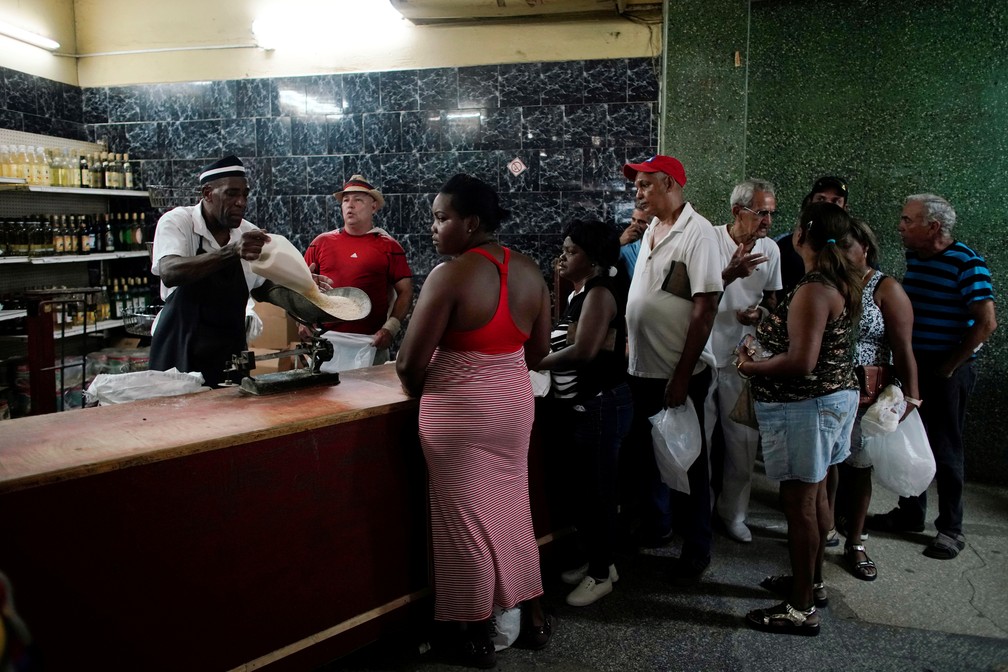RIO DE JANEIRO, BRAZIL – In parallel with the start of the first relaxation stage of the coronavirus measures, Cuba’s government announced new economic reforms late last week, with which the country intends to tackle the economic impact of the pandemic.
State foreign trade is to be decentralized in order to grant companies greater decision-making powers. For the first time, private companies will also be allowed to export goods and cooperate with foreign investors in Cuba.
The coronavirus pandemic is inflicting severe economic damages around the globe. The UN Economic Commission for Latin America and the Caribbean (ECLAC) projects a recession of 5.3 percent in the region in 2020. According to the report, the economic consequences of the coronavirus crisis will hit Venezuela (-18 percent), St. Lucia (-8.1 percent) and Grenada (-7.3 percent) the hardest, while Cuba is expected to suffer an economic slump of 3.7 percent.

“An economy with zero tourism and under the tightened US blockade cannot continue to operate as if nothing has happened,” explained Cuba’s Minister of Economy Alejandro Gil in early May.
At the time, President Miguel Díaz-Canel called for reforms to be expedited. The crisis should be used to implement the economic policies agreed upon as well as “introduce new players and practices”, said Díaz-Canel. Now that the relaxation has begun, the first steps in this direction have been announced.
In future, state-owned companies are to be granted new licenses for the independent handling of business abroad. As already announced last summer, major responsibilities are to be shifted from the Ministries to companies.
“Concentrated purchasing, which is an advantage when products are in high demand, must not become an obstacle for Cuban companies,” said Foreign Trade Minister Malmierca in a special broadcast on Saturday on “Round Table” TV political program.
In the context of the planned economic reform announced last summer, state-owned companies in Cuba are to be allowed to operate with greater independence and make operational decisions “without a straitjacket”. For some years now, 50 percent of profits have been kept in the company rather than the former 30 percent.
In order to use the new opportunities, a new incentive system will be developed which “encourages exports through fiscal measures”, Malmierca explained.
Another new feature is that for the first time private companies will be allowed to engage in foreign trade. Both non-agricultural cooperatives (Cooperativas No Agropecuarias, CNoA) and self-employed individuals (“Cuentapropistas”) will be able to sell their goods abroad through specialized state companies.
This is intended primarily to boost economic development at the local level, where, according to Malmierca, “there is still a lot of unexploited potential”.
Accordingly, the government is also planning some changes in the laws governing foreign direct investment. Joint ventures and wholly foreign companies will be allowed to cooperate with the private sector in the future, thus creating new export value chains.
Since the start of the year, Cuba’s state-owned companies have been allowed to cooperate with companies in the Mariel Special Economic Zone. Rather than favoring primarily large-scale projects as in the past, Cuba wants to make “room in the future for projects with small companies that address problems at local and territorial level.”
Malmierca also made it clear that investments by Cuban citizens abroad are specifically encouraged. The Cubans are likely to look back on their experiences with China and Vietnam, where a breakthrough in foreign investment was achieved with the help of the communities in exile.
“There are no restrictions on investment for Cubans living abroad,” Malmierca says. Politically, Havana is passing the ball back to Washington, from where the private sector has been blocked with repeated new sanctions, including money remittances from families.
In addition, the first draft of a new cadre policy, the introduction of compulsory insurance for transport service providers and the possibility of working as a private translator were passed in Cuba over the past few days.
The reforms are intended to offset the sharp downturn in tourism by reviving exports of goods, which the state and private sector are expected to provide in cooperation. Due to the lack of foreign exchange, the state has recently been forced to significantly reduce its imports, which has led to supply bottlenecks for the population and long lines outside shops.
Since last October, the government has been building up a trading network for private imports in US dollars and other foreign currencies, which is now being complemented by a corresponding counterpart for exports.
This also lays an important foundation for the currency reform, which has been deferred several times and which is intended to remove the convertible peso pegged to the US dollar from monetary transactions. Since the start of the year, Havana’s stores have started to give change exclusively in Cuban pesos.

